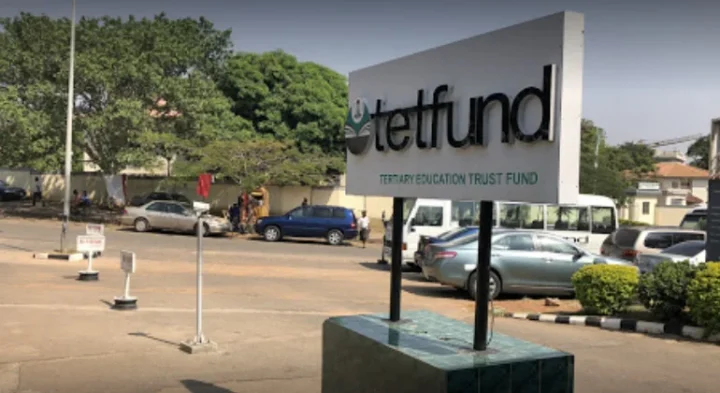Here are the seven top business stories you need to track this week — May 6 to May 11.
NBS REPORTS
The Nigerian Bureau of Statistics (NBS) is expected to release its electricity report for the first quarter (Q1) of 2024.
The bureau also intends to publish data on Nigeria’s gross domestic product report for the third quarter (Q3) and fourth quarter (Q4).
Advertisement
NERC UNBUNDLES TCN
The Nigerian Electricity Regulatory Commission (NERC) has unbundled the Transmission Company of Nigeria (TCN) by establishing the Nigerian Independent System Operator of Nigeria Limited (NISO).
NERC made this known in a circular dated April 30.
Advertisement
TCN is expected to transfer all market and system operation functions to the new company.
The commission had previously issued transmission service provider (TSP) and system operations (SO) licences to TCN, in accordance with the Electric Power Sector Reform Act.
FG, RESEARCH CENTRE PARTNER TO DEPLOY NUCLEAR REACTOR FOR POWER GENERATION
In partnership with the Centre for Energy Research and Training (CERT), the Nigeria Atomic Energy Commission (NAEC) says there are plans to deploy a nuclear reactor for power generation.
Advertisement
Yusuf-Aminu Ahmed, chairman of NAEC, spoke on May 2 at the 20th anniversary symposium of Nigeria’s first nuclear research reactor-1 (NNR-1) in Zaria.
Ahmed said Nigeria’s accumulated expertise in nuclear power positions the country well for advancing to the next stage of power generation using the technology.
“We have used the reactor for research and development over the years and now we are going to use the reactor for the purpose of generating electricity,” the chairman had said.
NDIC INCREASES BANKS’ DEPOSIT INSURANCE COVERAGE FROM N500K TO N5M
Advertisement
On May 2, the Nigeria Deposit Insurance Corporation (NDIC) increased deposit insurance coverage for all licensed deposit-taking financial institutions.
Bello Hassan, NDIC managing director and chief executive officer (CEO), announced this at a press briefing in Abuja.
Advertisement
Deposit insurance protects depositors’ funds in the event of a bank failure.
This coverage ensures that depositors are reimbursed to a certain limit for their deposits in the failed bank.
Advertisement
Hassan said the increment applies to deposit money banks (DMBs), microfinance banks (MFBs), primary mortgage banks (PMBs), payment service banks (PSBs), and mobile money operators (MMOs).
CBN DIRECTS FINTECHS TO HALT REGISTRATION OF NEW CUSTOMERS
Advertisement
Nigerian fintech companies have paused onboarding of new customers following a directive from the Central Bank of Nigeria (CBN).
The affected fintechs are Opay and Moniepoint.
Confirming the development to TheCable on April 29, an official at one of the fintech firms, who spoke on condition of anonymity, said they have started complying with the directive.
“I can tell you that compliance is on. You can try onboarding to see that we have complied,” the official said.
More so, OPay, on May 3, said it has warned its customers against using their accounts to facilitate cryptocurrency transactions.
The fintech firm said due to a directive from the CBN, it would close accounts involved in crypto trading.
‘QUEUES WILL END MAY 1— SOME PEOPLE EXPLOITING SITUATION’
Femi Soneye, spokesperson of the Nigerian National Petroleum Company (NNPC) Limited, had said the ongoing shortfall in supply of petroleum products and queues for the products will be cleared out by May 1.
Soneye said the company currently has more than 1.5 billion litres of product available, enough to last for at least 30 days.
However, he said some individuals might be exploiting the situation to maximise profit.
Prior to this, the Petroleum Products Retail Outlets Owners Association of Nigeria (PETROAN) said it does not have access to petroleum products.
Petrol scarcity had recently hit Nigeria, leading to queues across fuel stations and an increase in transport costs in major cities.
On April 25, the Nigerian National Petroleum Company (NNPC) Limited attributed the situation to logistics issues, assuring Nigerians that “they have been resolved”.
‘BANKS’ LOANS TO PRIVATE SECTOR DROPPED BY NEARLY N10TRN IN MARCH’
Meanwhile, The CBN has disclosed that banks reduced loans to the private sector to N71.21 trillion in March.
Credit to the private sector describes monetary resources given to the private sector, such as advances and loans, purchases of non-equity securities, trade credits, and other accounts receivable, which create a claim for repayment.
According to the CBN’s money and credit data, the current figure represents a month-on-month decline of 11.93 percent or N9.65 trillion drop, compared to N80.86 trillion recorded in February.
However, on a year-on-year basis, credit to the private sector rose by 65.57 percent compared to N43.01 trillion recorded in the corresponding period in March 2023.
Also, data obtained from the CBN shows that credit to the government decreased to N19.59 trillion in March from N33.93 trillion in February — representing a month-on-month decline of 42 percent.
On a year-on-year basis, CBN reported that credit to the government rose by 28.8 percent against N27.52 trillion in March last year.
Add a comment






